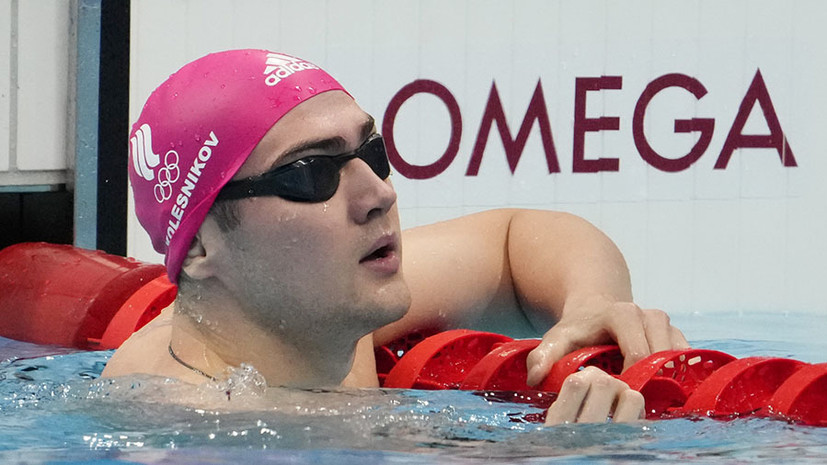Russian fans began to prepare for victory in the Olympic men's relay a few months before the start of the Games - right after the April selection, which was held in Kazan. It was there that three Russian sprinters - Kliment Kolesnikov, Andrey Minakov and Vladislav Grinev - swam their personal 100 meters in less than 48 seconds, and it became quite obvious that at such speeds the 4 × 100 m freestyle relay is an Olympic, and quite possibly a gold medal. "Read" - as coaches sometimes say, implying that only natural disaster or an accident can prevent the medal result.
In May, hopes only increased: the Russian guys won the relay at the European Championships in Budapest with a record of continental championships (3.10.41).
This victory was won by the most extended squad: the morning four swimmers in the final were replaced by a fresh one.
In other words, the national team had as many as eight sprinters ready to go to the Olympic start.
After that success, even professionals (in particular, the European champion Igor Marchenko) agreed: if we talk about the maximum chances for a team triumph in Tokyo, then this is, of course, a sprint relay.
In addition, it is very important for the entire Russian swimming: after all, it will depend on this start, with what mood the team will enter the further competitive stream.
But, as the famous Russian satirist Mikhail Zhvanetsky liked to say, you can go down in history, or you can plunge into history.
This is roughly what happened on Monday with the Russian four sprinters in the final morning final.
Talking about the chances of Russian swimmers for success in Tokyo, Marchenko stressed: “Everything will depend on the coaches.
In order to "shoot" at the Olympics, you need to very accurately bring the athlete to peak form.
But there are still many pitfalls ... "
The ex-swimmer saw one of these stones as participation in the relay race of Kliment Kolesnikov, who started in the team swim twenty minutes after the semifinals on the 100-meter backstroke. Clement won his personal distance with an excellent result (52.29), entered the final second after the Olympic champion at this distance Ryan Murphy, 0.05 seconds behind the American, and in the relay he actually "paid off", because by the time of his start at the finish there was no point in pushing back.
Clement received the relay from Vladimir Morozov fifth, the gap by that time was already such that he could not win back, and in all cases the swimmer should have thought about how to recover as much as possible by tomorrow's morning final on his back, where both from Kolesnikov and from the world champion Evgeny Rylov is expected at least to fight for getting on the podium.
Or maybe Kolesnikov simply could not swim faster.
Grinev and Morozov frankly failed their stages.
The only one of the four relay races who did not deserve criticism was Minakov - 47.71 at the starting segment.
One can also argue with this statement: the personal record of an athlete in the hundred-meter race is 47.54.
True, it was shown a year ago.
In this respect, Minakov did not succeed in jumping to Tokyo above his head.
Shortly before the relay start, Yulia Efimova, who qualified for the final of the 100-meter breaststroke with a fifth time (1: 06.34), noted in the mixed zone that an extremely unusual start time creates a certain problem for swimmers.
“In the morning, everyone swims much worse, I am also no exception,” said the athlete, and added, speaking about the Olympic season in general.
“There are not enough starts, there is no roll, confidence, you jump into the water and you don’t always know what to do”.
In order to show the maximum possible result in the morning, there are certain technologies in sports. First of all, it is a very early rise in order to completely "wake up" not only the head, but also the muscles, and this is always a much longer process. By the way, Russian gymnasts spoke about this on the eve of the qualifying competition. But even without their words, it has long been known: to be ready to fight for victory at ten in the morning, you need to wake up at five.
Another question is that the result of Efimova in Tokyo is exclusively her personal affair. The athlete has long branched off from the Russian team, she herself is responsible for her preparation and, it seems, does it no worse than the entire coaching staff of the Russian team. If Yulia is left without a medal in Tokyo, there will be at least understandable reasons: to compete in breaststroke, and indeed in swimming, with young athletes, when there are already four Olympic cycles and many injuries behind her, it is not always realistic.
Anastasia Fesikova found herself in a similar position, in fact, in Tokyo: at her first world championship in 2009, she brought the Russian team two personal silver medals, at the next world championships she won two more (including a gold one), became the vice-champion of the Games in London, and in Tokyo did not make it to the final. In such cases, it is customary to pronounce the well-known phrase about metal fatigue, and it is worth noting that, for all its divergence, it conveys the essence of the situation most accurately.

